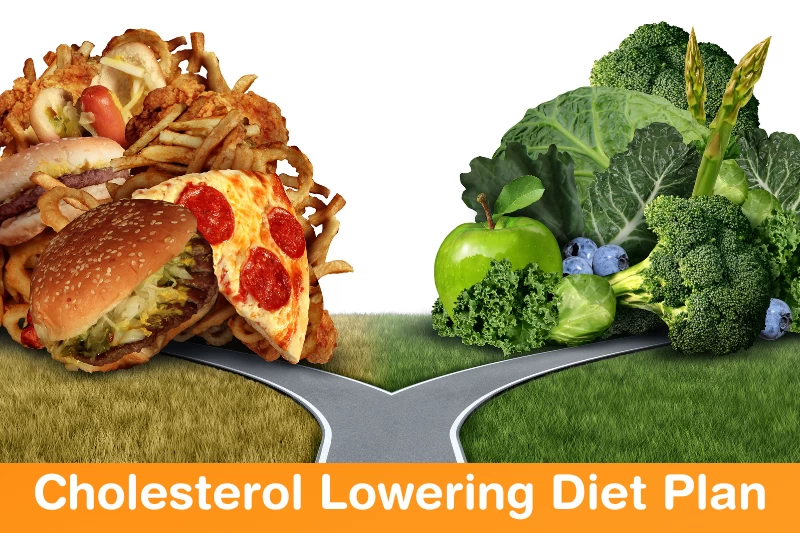
- 1st May 2023
Table of Contents
How does Intermittent Fasting work?
Periods of fasting are interspersed with periods of normal eating in a diet known as intermittent fasting (IF). Recent studies have shown promise as a tool for weight loss, but there may also be positive effects on cardiovascular health. Multiple cardiovascular risk factors, including blood pressure, cholesterol levels, and insulin sensitivity, have been shown to improve with IF. The risk of cardiovascular disease is also thought to be reduced by intermittent fasting. Intermittent fasting may be helpful for cardiovascular health because it decreases inflammation. Studies have shown that IF can reduce markers of inflammation in the body, which is important because chronic inflammation is linked to many diseases, including heart disease. Additionally, autophagy, the body's natural process of removing damaged or dysfunctional cells, may be bolstered by intermittent fasting, preventing the accumulation of harmful substances in heart tissues. There is promising evidence supporting the potential benefits of intermittent fasting in reducing cardiovascular risk factors and preventing heart disease complications, but more research is needed to fully understand how intermittent fasting affects heart health. However, before trying intermittent fasting, anyone, especially those with preexisting medical conditions or taking medications that require food intake at specific times, should talk to their doctor.
Improved cardiovascular health thanks to IF
In recent years, IF has risen in popularity as a lifestyle option among those interested in improving their health. The potential for IF to enhance cardiovascular health is among its most important advantages. Intermittent fasting has been shown to help lower blood pressure, inflammation, and obesity — all of which are risk factors for cardiovascular disease. All of these things put you at a higher risk for cardiovascular disease. One study found that insulin-like growth factor-1 (IGF-1), a hormone involved in cell growth and proliferation, is reduced by intermittent fasting, which in turn lowers blood pressure. Adiponectin, a protein hormone that controls glucose levels and protects against inflammation, is also increased by IF. One of the main reasons people get heart disease is because of inflammation. Also, research shows that IF helps people lose weight and cut fat while keeping their muscle mass intact. One of the major contributors to the rise of cardiovascular disease is obesity. Individuals may be able to prevent or postpone the onset of cardiovascular diseases like stroke and coronary artery disease by reducing body weight and improving insulin sensitivity through IF.

Possible Adverse Effects and Risks
It's important to be aware of the risks and side effects of intermittent fasting, despite the fact that this eating pattern has been shown to have a number of health benefits. Low blood sugar levels, which can occur during fasting, are associated with a variety of unpleasant physical and mental symptoms. People with diabetes or hypoglycemia are particularly vulnerable to these effects. Dehydration can also occur as a result of intermittent fasting. Since you aren't getting any liquids from food sources while fasting, your body may not be getting what it needs to function. Fasting can lead to dehydration, so it's crucial to drink plenty of water throughout the day. Finally, there are questions about the safety of intermittent fasting for the cardiovascular system. Long fasts may increase inflammation and oxidative stress, which may increase the risk of cardiovascular disease, according to some research. More study is required, however, before any firm conclusions can be drawn.
Studying the Relationship Between IF and Heart Disease
Alternating periods of fasting and eating is what's known as "intermittent fasting," or "IF. Recent research suggests that IF may improve cardiovascular health. The risk of cardiovascular disease can be reduced, inflammation can be tamed, and blood pressure can be lowered, according to one study. The effects of IF on lipid metabolism in overweight people were also investigated in a separate study. According to the findings, IF can lower total cholesterol and LDL ("bad") cholesterol levels while simultaneously raising HDL ("good") cholesterol levels. Accordingly, IF merits further investigation as a means of lowering cardiovascular disease risk factors. More study is needed to fully understand the connection between IF and cardiovascular health, though. If you have a preexisting medical condition like heart disease or diabetes, talking to your doctor before beginning a new diet or exercise plan is essential.
Suggestions and Advice for a Healthier Diet
There has been a rise in the popularity of intermittent fasting as a weight loss and healthful eating strategy in recent years. However, the effect of intermittent fasting on risk factors for cardiovascular disease (CVD) has raised some concern among experts. Intermittent fasting has been shown to lower cardiovascular disease risk factors such as blood pressure, cholesterol, and glucose levels. However, the efficacy and safety of intermittent fasting as a long-term strategy for lowering CVD risk is still up for debate. It has been argued that other dietary strategies, such as the Mediterranean diet or plant-based diets, may be more effective in the long-term at reducing CVD risk than intermittent fasting. Finally, before beginning any new diet or exercise programme, people who are thinking about trying intermittent fasting should consult with their doctor. This is especially the case if they already have heart problems or take medications that could be affected by dietary changes.

Managing Adverse Repercussions
The use of intermittent fasting as a means to shed extra pounds has grown in popularity in recent years. However, this eating routine may have unintended consequences for your cardiovascular health. Dehydration, which is common during intermittent fasting, has been linked to an increased risk of cardiovascular disease. Electrolyte imbalances, which can lead to heart palpitations and irregularities, are a common side effect of fasting. Lowered energy is another potential drawback of intermittent fasting. Fasting periods on this diet plan can cause blood sugar to drop dangerously low, leaving dieters weak and woozy. This can lessen the incentive to engage in heart-healthy physical activity or exercise. Dehydration, low energy, and other negative side effects of intermittent fasting can raise the risk of cardiovascular disease if they aren't managed properly, but the weight loss benefits may be worth it. Maintaining a healthy electrolyte balance and drinking plenty of water are both crucial to staying hydrated during fasts. Stop your fast immediately and see a doctor if you experience any serious symptoms, such as chest pain or trouble breathing, while on a fast.














